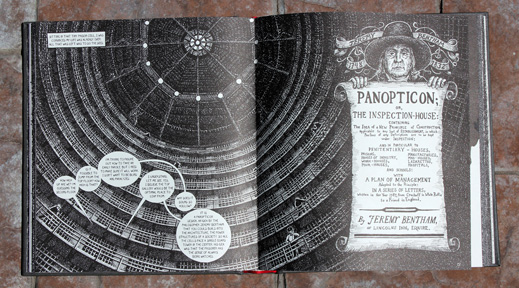The Hunting Accident
Created by: David Carlson and Landis Blair
Published by: Self-published
Pages: 432



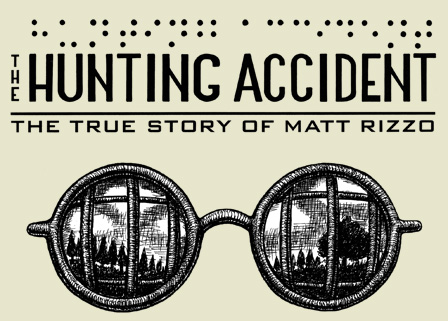
I have always had a good relationship with my dad. I have always felt a care and a closeness and, so far as it matters, an honesty between us. So far as it matters.
Certainly there are things about his past that I'm interested in but unwilling to inquire into. He was a mad hippie in the late '60s, a drug fiend who spent debauched days living careless amongst the surf communities of Kawaii and Southern California. The era of Janis and Jimi, of Woodstock and Monterey. In the months after a cataclysmic bad trip on Christmas Day in 1970, he reformed, a newly minted member of the Jesus People movement, hippies high on the Holy Ghost rather than on tabs of sunshine. That's the father I grew up knowing, the ardent believer, the artist dedicated to the cause of Christ. Even today, an old man, he surfs on his vacations back from his missionary work in Eastern Europe. He will die a convert, his former life in the hippie movement dead and ghosted for more than four decades now. And it's a life I'm curious about—but will never ask after.
There are boundaries, and I know enough to respect the privacy of people in regard to their shames, their guilts. There are some things that hurt too much to relive, to admit in the light of day. And I get the feeling that some of my father's past may settle in those trenches, even as some of mine does and even as some of yours doubtlessly does. Truth and dare is a great children's game because children have so little to hide. I get hints of what that era was to him, usually the highlights (seeing Cream live, with Ginger Baker wailing an obscenely long solo) or the funny stories (how swimmingly high he and his three comrades were while handling bomb ordinance in the belly of the USS Forrestal during Vietnam11The Forrestal would ignite later in his tour and twenty years later he would recount to me the smell of burning flesh and the fact that cars backfiring would send him wild-eyed with nascent terror.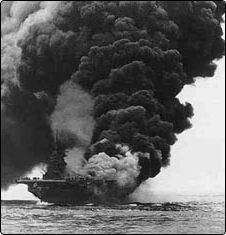 ). Very occasionally, I would get some sense of the long past troubles that haunted him—his staunch recollection of his involvement in the hippie movement not being characterized by love, peace, and freedom but instead by darkness and turmoil. That always sparked my curiosity. I wanted to know what he meant: in specific terms (whenever I learn of anything, I like to understand it in as much detail as I can easily obtain). But that always seemed a bridge too far, so I tamped down my interest.
). Very occasionally, I would get some sense of the long past troubles that haunted him—his staunch recollection of his involvement in the hippie movement not being characterized by love, peace, and freedom but instead by darkness and turmoil. That always sparked my curiosity. I wanted to know what he meant: in specific terms (whenever I learn of anything, I like to understand it in as much detail as I can easily obtain). But that always seemed a bridge too far, so I tamped down my interest.
Still, despite what may be counted in some sense a secret life, I never felt my father was hiding anything from me. We just had some sort of mutual sense of discretion and privacy. Good for everyone involved probably.
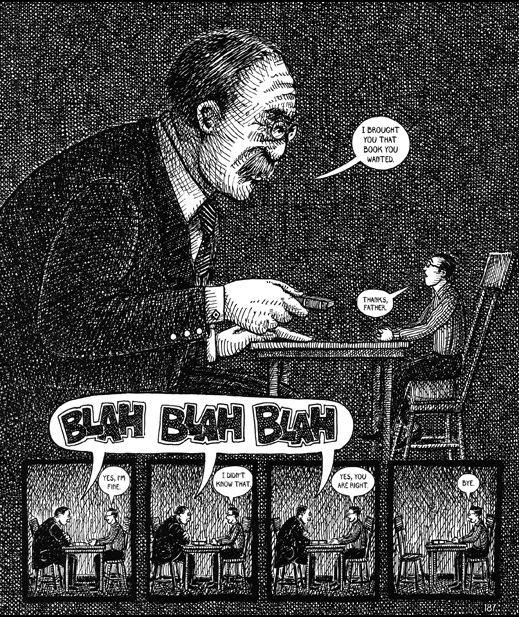
That makes Matt Rizzo's story doubly fascinating to me. Not only is it a gripping exploration of a very real intersection between an unfortunate, haunted young man and a famed criminal, but The Hunting Accident is also (and perhaps primarily) about fathers and sons and that turmoil that builds when hidden pasts are not encountered in an environment built on trust.
The Hunting Accident in the main spans around four decades, moving us from around 1930 to 1970. Some episodes occur earlier, and the epilogue travels all the way to the present day. Matt Rizzo has a problem with his son. In 1959, Rizzo's son arrives from California where his mother has just expired. Rizzo is blind and an unsuccessful writer, but he tries to do well by his son. He explains his blindness as the result of a hunting mishap when he was a child. There's more to it—much more—but Rizzo feels compelled to hide the truth of it from his son as much in order to protect the young boy as to protect his own heart.
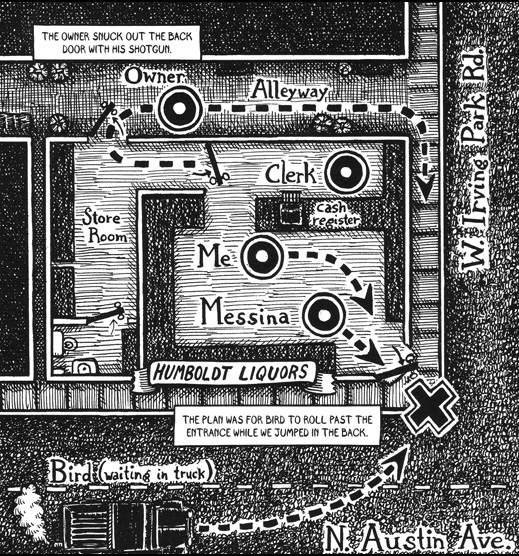
Eventually, it comes out that Rizzo spent time in prison as a young man, cellmate to Nathan Leopold Jr (of the famous Leopold and Loeb). From there begins a raucous, wonderful exploration of mid-twentieth-century history, prison life in the same era, great literature, and the struggles that sons have with their fathers. The story is dripping with fathers and sons—and while all of those relationships resemble not even remotely my own relationship with my father, there's still a little something that sounds familiar. The world is recognizable.
Writer David Carlson does an admirable job taking what could have been a story told via a wikipedia summary and twists it into something ranging and delicious, a complexity revealed by pieces and parts through visions and allusions. It's an informational book that educates while it goes. Don't know what a glim box is? You'll soon learn. The history of Bentham's panopticon? Covered. Want to know more about Braille? This is your book. Education is only employed so far as it will make the story come alive, but for that Carlson chooses exactly the right things to highlight. Like a map of the railroad lines circa 1929. Just a bit piece, almost entirely unnecessary. But it informs and magnifies the work.
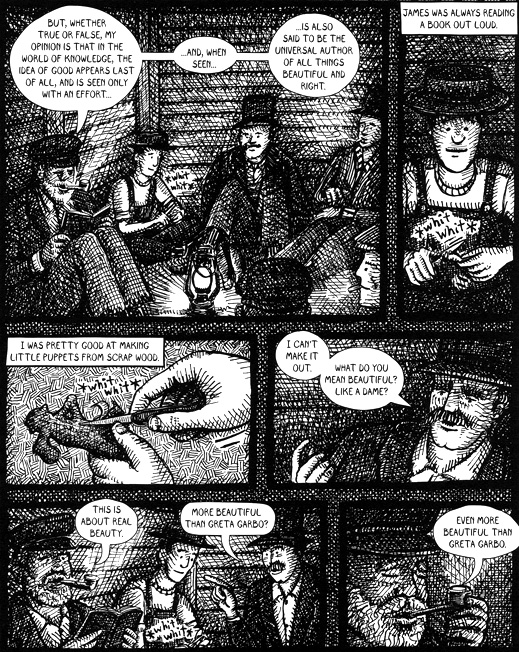
As well, The Hunting Accident is a very literary work. Those of you who've read my review of Fun Home may recall that I was skeptical of Bechdel's use of the literary allusion, that I found it skirted pretension too closely for me to be entirely comfortable with it. It often felt tacked on and sometimes gimmicky. With The Hunting Accident, we feel none of that because the profusion of Homer and Virgil and Dante and Emerson and more obscure authors are intimately connected with Rizzo's own Infernal descent through the hell of Stateville prison. And not only do we find lengthy quotation from those well-regarded, well-established authors, but Carlson spends significant time in the writing of Rizzo himself, a complicated, dizzying exploration of worlds and purposes, inspired by Dante and Milton and others. This is a thick work. It could have been simple and dull, but Carlson makes The Hunting Accident something grand and beautiful—a story of reinvention on a massive scale, made concretely evident by our excursions into the narrator's own body of work.
Sometimes, when you have a larger-than-life figure, the best way to approach them isn't through straight biography; sometimes you want to sneak up on them obliquely. My favourite treatment of Hollywood legends is David Niven's Bring on the Empty Horses. Niven collects a series of personal anecdotes to paint the portrait of a bucketful of Hollywood names. Clark Gable, Errol Flynn, Bogart and Bacall, etc. The story is resolutely Niven's but through him, we unveil full and real lives for these other giants of the era. It's delightful and probably far better than a straight biography would have been. And that's exactly how we see Leopold in The Hunting Accident. He's not the star. He's not the focus. But he's so much a looming presence—and so essential to the development of Rizzo's story—that the book can't help but pull back the curtain on who he was a bit. The Hunting Accident is never not the story of Rizzo and his son, but since Leopold plays such a tremendous role in that story, it becomes his story as well.
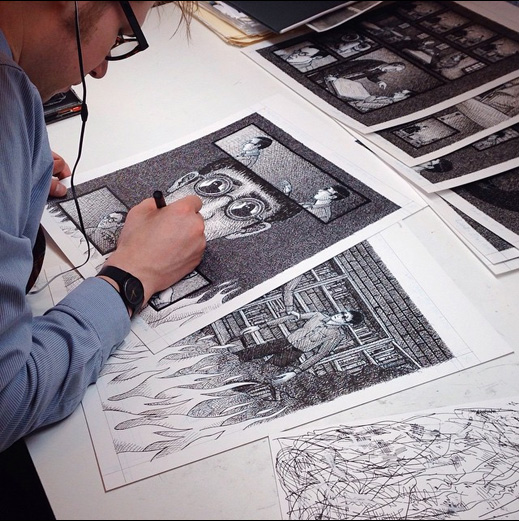 Landis Blair, in the process of ruining his wrist and eyesight for all time
Landis Blair, in the process of ruining his wrist and eyesight for all time
Artist Landis Blair gives a bravura effort, packing 423 large square pages full of detail. Blair is a bit of an unconventional comics artist, placed solidly in the indie stream of the medium. He seems aware of the weaknesses of his art and uses both his tremendous design sense and ultra-patient hatching technique to mitigate what could otherwise damage the story. Instead of being a hindrance to The Hunting Accident, Blair ends up being perhaps its most evident grace, delivering a work of beauty and intelligence. In a lot of ways, The Hunting Accident unveils itself to be something like a working class Habibi—with all of the invention of Craig Thompson's drawings minus their rarified elegance. His pages are endlessly creative and he does as well illustrating the literal horrors of Stateville Prison as he does the dreams, the visions, and the metaphorical. By his hand it's made evident that The Hunting Accident could likely exist only in the comics medium (possibly in animated form, though much would likely be lost).
Really though, check out these page designs. It's pretty magnificent work:
In the end, there's really only one problem with The Hunting Accident. It's just not available. I happened to see it being Kickstarted and jumped on because I thought it looked interesting (and it ended up being much better that I expected, which is always nice). But apart from those original 500 copies, it's (hopefully very temporarily) out of print. The authors do not wish to self-publish and, as of their last update on 19 June 2015, are looking for a legit publisher to take it on. It's a worthy book and one of the best comics I've read this year so hopefully someone like Drawn & Quarterly or Fantagraphics or Pantheon or whoever will take it on. I'd love to see this get wider play.
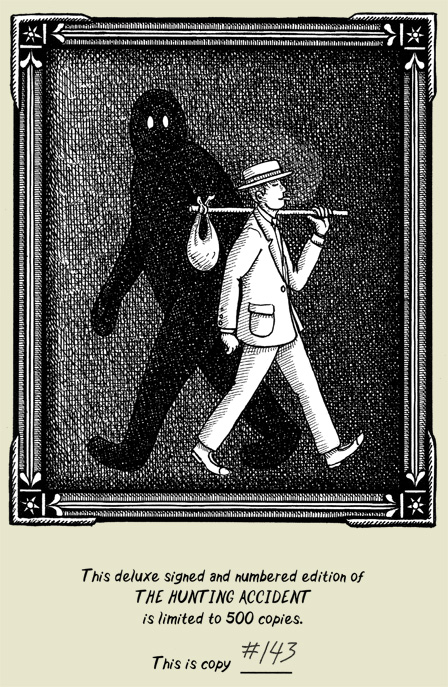
Good Ok Bad features reviews of comics, graphic novels, manga, et cetera using a rare and auspicious three-star rating system. Point systems are notoriously fiddly, so here it's been pared down to three simple possibilities:
3 Stars = Good
2 Stars = Ok
1 Star = Bad
I am Seth T. Hahne and these are my reviews.
Browse Reviews By
Other Features
- Best Books of the Year:
- Top 50 of 2024
- Top 50 of 2023
- Top 100 of 2020-22
- Top 75 of 2019
- Top 50 of 2018
- Top 75 of 2017
- Top 75 of 2016
- Top 75 of 2015
- Top 75 of 2014
- Top 35 of 2013
- Top 25 of 2012
- Top 10 of 2011
- Popular Sections:
- All-Time Top 500
- All the Boardgames I've Played
- All the Anime Series I've Seen
- All the Animated Films I've Seen
- Top 75 by Female Creators
- Kids Recommendations
- What I Read: A Reading Log
- Other Features:
- Bookclub Study Guides
